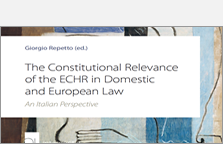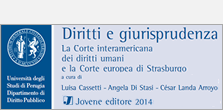VANNUCCINI S. – «Memento mori» («secundum voluntatem medicorum et sententiam iudicum»). Il caso francese di Vincent Lambert
Autore dell’articolo/Author
Sabrina Vannuccini
Abstract
The case of Vincent Lambert refers to the withdrawal of artificial nutrition and hydration of a French patient in a state characterized as «minimally conscious plus», according to the decision taken by the doctors in charge of him, first confirmed by the Conseil d’État and then by the ECtHR, but in the absence both of advance directives drawn up by the patient and of a person of trust within the meaning of the relevant provisions of the Public Health Code, and also with the opposite opinion of his parents and other family members.
This case is not only a patient’s case, but also a question about the death, that of a young man in the incapacity to express its will. This case, and the questionable national and European rulings, reopen a debate never ceased in France, as in Europe as a whole, about the rights of patients and their representatives, the duties of care and assistance, the distinction between treatments and vital treatments, the full protection of human frailty, the unavailability of one’s own bodily life.[…]













